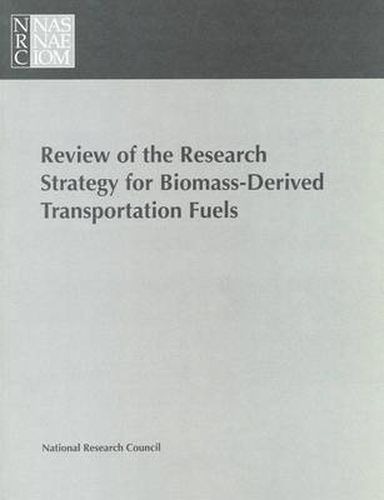Readings Newsletter
Become a Readings Member to make your shopping experience even easier.
Sign in or sign up for free!
You’re not far away from qualifying for FREE standard shipping within Australia
You’ve qualified for FREE standard shipping within Australia
The cart is loading…






The Office of Fuels Development (OFD), a component of the U.S. Department of Energy’ s (DOE) Office of Transportation Technologies, manages the federal government’s effort to make biomass-based ethanol (bioethanol) and biodiesel a practical and affordable alternative to gasoline. Through the National Biomass Ethanol Program, the OFD is overseeing key research and development (R&D) and industry-government partnerships for the establishment of a cellulosic biomass ethanol industry. Cellulosic biomass resources being investigated include agronomic and forest crop residues, woody crops, perennial grasses, and municipal wastes. Starch-based sources, such as cereal grains (e.g., corn grain), are not included in this program. The objective of the program is to promote the commercialization of enzyme-based technologies to produce cost-competitive bioethanol for use as transportation fuel.
The OFD requested that the National Research Council estimate the contribution and evaluate the role of biofuels (biomass-derived ethanol and biodiesel) as transportation fuels in the domestic and international economies, evaluate OFD’s biofuels strategy, and recommend changes in this strategy and the R&D goals and portfolio of the OFD in the near-term to midterm time frame (about 20 years). During this period, a number of complex, interacting factors, including advances in the technologies used to produce biofuels at a competitive cost, the elimination of tax incentives, advances in vehicle and engine technologies, growing concerns about solid waste disposal and air pollution, and global measures to reduce emissions of greenhouse gases to the atmosphere, will affect the position of biofuels in transportation fuel markets.
$9.00 standard shipping within Australia
FREE standard shipping within Australia for orders over $100.00
Express & International shipping calculated at checkout
The Office of Fuels Development (OFD), a component of the U.S. Department of Energy’ s (DOE) Office of Transportation Technologies, manages the federal government’s effort to make biomass-based ethanol (bioethanol) and biodiesel a practical and affordable alternative to gasoline. Through the National Biomass Ethanol Program, the OFD is overseeing key research and development (R&D) and industry-government partnerships for the establishment of a cellulosic biomass ethanol industry. Cellulosic biomass resources being investigated include agronomic and forest crop residues, woody crops, perennial grasses, and municipal wastes. Starch-based sources, such as cereal grains (e.g., corn grain), are not included in this program. The objective of the program is to promote the commercialization of enzyme-based technologies to produce cost-competitive bioethanol for use as transportation fuel.
The OFD requested that the National Research Council estimate the contribution and evaluate the role of biofuels (biomass-derived ethanol and biodiesel) as transportation fuels in the domestic and international economies, evaluate OFD’s biofuels strategy, and recommend changes in this strategy and the R&D goals and portfolio of the OFD in the near-term to midterm time frame (about 20 years). During this period, a number of complex, interacting factors, including advances in the technologies used to produce biofuels at a competitive cost, the elimination of tax incentives, advances in vehicle and engine technologies, growing concerns about solid waste disposal and air pollution, and global measures to reduce emissions of greenhouse gases to the atmosphere, will affect the position of biofuels in transportation fuel markets.